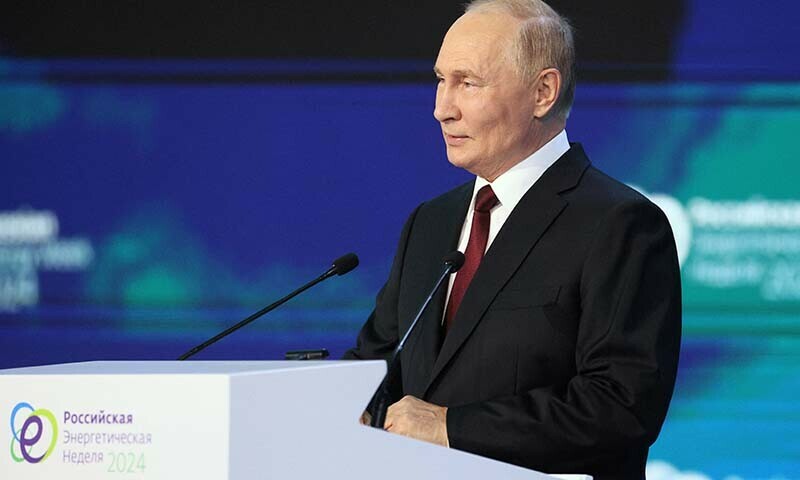
[ad_1]

PARIS: Vladimir Putin’s proposed revision of Russian nuclear policy signals a worrying readiness to use the ultimate weapon against Ukraine and even Nato members, but it remains far from certain the threat will be translated into action, analysts say.
The proposed broadening of Russia’s nuclear rules comes as Moscow’s invasion of Ukraine stretches into its third year and Kyiv seeks permission from Western allies to use long-range weapons to strike targets deep inside Russia. With the ramped-up rhetoric Putin is looking to dissuade Western countries from broadening support for Kyiv.
But with repeated threats, he is also putting himself under pressure to act on the use of nuclear weapons, not only against Ukraine but also its Nato backers.
Maxim Starchak, a fellow at the Centre for International and Defence Policy at Queen’s University in Canada, said that with the revision of the doctrine, Putin wanted to lower the threshold for use of nuclear weapons. “Putin counts on the introduction of an additional — nuclear — factor in the Ukraine war. He believes and hopes that this will work,” Starchak said.
A senior European military official, said Putin had a limited range of options two and a half years into the war. When Russia invaded Ukraine in February 2022, “Putin went all-in. He therefore has little capacity for escalation,” the official said. He outlined three options at Putin’s disposal: the use of nuclear rhetoric, the use of nuclear weapons, and hybrid warfare against the West.
‘Western nuclear response’
Since the invasion Putin has repeatedly threatened to use nuclear weapons, which the West has dismissed as sabre rattling. But on Wednesday he went further, announcing changes to the country’s nuclear doctrine during a televised meeting of the Kremlin’s Security Council.
The updated doctrine would allow the use of nuclear weapons against non-nuclear states when they are supported by nuclear powers — a clear reference to Ukraine and its Western backers. The new rules would also allow Russia to unleash a nuclear response in the event of a “massive” air attack, he said.
For Pavel Luzin, a visiting scholar at the Fletcher School of Law and Diplomacy at Tufts University, Putin’s threats still rang hollow. “Russia is frantically looking for ways to make the world afraid of Russian nuclear weapons again,” he said.
Hans Kristensen, director of the Nuclear Information Project at the Federation of American Scientists, said: “While the Ukrainian retaliation strikes into Russia are causing serious damage, a Russian nuclear response could lead to far greater damage if it triggered a Western nuclear response.”
The European Union on Thursday denounced Putin’s latest move as “reckless and irresponsible”, and US Secretary of State Antony Blinken called the Russian leader “totally irresponsible”.
In Moscow, Alexander Khramchikhin, a Russian military analyst, said he did not see “any fundamental changes” to the doctrine, and its wording remains intentionally vague. What mattered, he said, was the message the Kremlin was sending after Ukraine repeatedly crossed Moscow’s “red lines”, with its cross-border offensive in the western region of Kursk and the massive use of drones against targets deep inside Russia.
Published in Dawn, September 27th, 2024
[ad_2]
Source link






